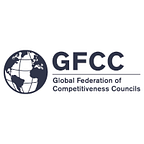Lessons learned from the Global Financial Crisis — Interview with Rogério Studart
Our Distinguished Fellow, Rogério Studart, was a Executive Director of the World Bank when the Global Financial Crisis erupted in 2009. In this interview, he comments on the lessons learned from the financial crash and how his realistic views were initially at odds with the prevailing optimism amongst international leaders about the crisis.
Beyond his former role at the World Bank, Studart is a respected academic and scholar. His work is widely recognized for its focus on evidence-based policies concerning the costs, benefits, and opportunities in the transition to low-carbon growth. He gives lectures at universities around the world and participates on the boards of two climate-related think tanks and an international social work NGO. You can access his full bio here
What role did you play during the Global Financial Crisis?
Rogério Studart: The initial indications of the financial crisis emerged in 2008, and its full eruption occurred in 2009 during my tenure as the Executive Director at the World Bank. During that period, I was entrusted with representing about eight countries, including Brazil, several nations in Latin America, and the Philippines. Within the World Bank’s Board of Directors, the role of the Executive Director entailed the critical responsibilities of assessing the strategic aspects of all operations and overseeing the bank’s daily activities.
What lessons has the Global Financial Crisis taught you?
Rogério Studart: As an economist, I was trained in a tradition where John Maynard Keynes and Hyman Minsky were very important references. Therefore, I was already used to reading and following the history of financial crises. Also, even before the 2008 crisis, I had very strong views on the natural tendency of market economies to trigger episodic financial crises, especially after the rapid financial deregulation that began in the 1980s. What was interesting and dramatic was that this was the first financial crisis in the North Atlantic, originating at the heart of the United States, due to the subprime.
Sometimes, market dysfunctions can lead to crises that, if not prevented and not noticed by responsible authorities, end up becoming significant. In the case of the United States, the subprime issue started very small in a very complicated situation. Institutions were lending money to people who couldn’t afford to pay, leading to speculation in the real estate sector. When the crisis occurred due to payment delays, it created a cascading effect on other financial assets because everyone rushed to sell these assets to meet the cash needs generated by the crisis. There was an immediate liquidity problem.
At the time, many experts, analysts, and economists resisted recognizing the onset of a crisis. Economists in the market, obviously, are making short-term bets. If they manage to exit last in a crisis situation, they can make a lot of money, so many of them stay. Many of them wait until the last moment to exit in a situation of increasing financial fragility, and other economists are trained to let the market solve crises. What surprised me most was the reaction of economists and analysts outside the market. For instance, in 2007, we went in a retreat with the Executive Board of the World Bank, and I witnessed a particularly optimistic response from economists in the World Bank, the IMF, specialized media, and think tanks, regarding the crisis. In fact, my colleagues and other participants reacted quite surprised when I raised my hand and said that this was a crisis that could expand, and I provided an analysis of it.
The lesson I take is that, in general, people, especially market economists and those in these institutions, tend to analyze the situation with optimism and often leave it until the last moment to realistically assess it. They prefer to maintain a more optimistic outlook on the situation.
Could we apply lessons from the Global Financial Crisis to a future financial crisis?
Rogério Studart: I believe it’s very important to apply these lessons for the future, even if the risks we’re facing today are different. Today's world confronts various serious risks — from financial instability to geopolitical tensions, and the existential risk brought about by a climate crisis. These are all risks that are more or less evident to everyone. However, people seem to continue to live as if they do not exist. The ability of the market to respond to these risks indeed appears quite limited, especially when governments are reluctant to take action due to political exposure. I think there is a certain march toward recklessness in these crisis processes. When we were only dealing with a financial crisis that could be reversed primarily using state financial resources, it was one thing. Other crises, such as the geopolitical crisis, which can have an existential dimension, and the climate emergency, are not easily reversible. They can start to generate crises not only for the global economy but also for humanity as a whole.
